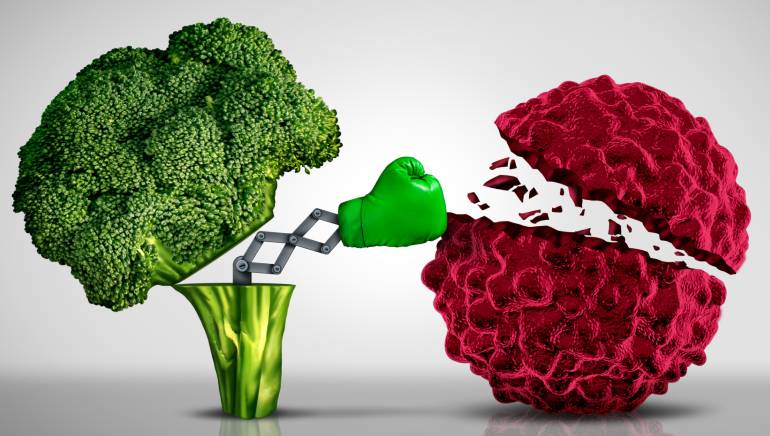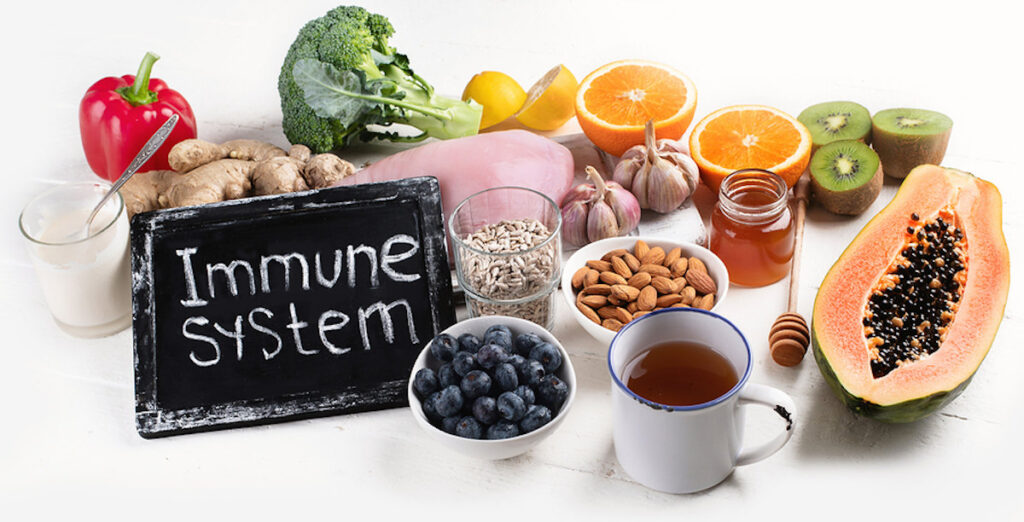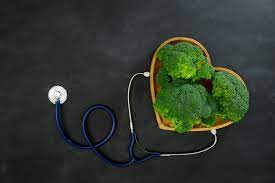What are the nutritional benefits of broccoli?
Broccoli is a highly nutritious vegetable that is rich in a variety of essential vitamins, minerals, and other beneficial compounds. Here are some of the nutritional benefits of broccoli:
Vitamins and minerals: Broccoli is an excellent source of vitamins C, K, and A, as well as folate, potassium, and fiber. It also contains smaller amounts of other essential vitamins and minerals like calcium, iron, and zinc.
Antioxidants: Broccoli contains a variety of potent antioxidants like flavonoids, carotenoids, and vitamin C that help protect the body from damage caused by free radicals.
Anti-inflammatory compounds: Broccoli contains compounds like sulforaphane and kaempferol that have been shown to have anti-inflammatory effects and may help reduce the risk of chronic diseases like heart disease and cancer.
Digestive support: Broccoli is high in fiber, which helps promote digestive health by supporting regularity and preventing constipation. It also contains a compound called sulforaphane that has been shown to have protective effects on the stomach lining.
Immune system support: Broccoli is rich in vitamin C, which plays a key role in immune system function. It also contains other immune-supportive compounds like beta-carotene and zinc.
Overall, broccoli is a highly nutritious vegetable that can provide a wide range of health benefits when incorporated into a healthy and balanced diet.
Can broccoli help prevent cancer? If so, how?

Yes, broccoli has been shown to have potential cancer-fighting properties. Broccoli contains several compounds that may help prevent cancer, including:
Sulforaphane: Broccoli is rich in sulforaphane, a compound that has been shown to have anti-cancer effects. Sulforaphane has been found to inhibit the growth of cancer cells and may also help protect healthy cells from damage.
Glucosinolates: Broccoli contains glucosinolates, which are compounds that have been shown to have anti-cancer properties. Glucosinolates are converted to compounds called isothiocyanates, which can help prevent the development and spread of cancer cells.
Antioxidants: Broccoli is high in antioxidants like vitamin C and flavonoids, which can help protect cells from damage caused by free radicals. Free radicals can damage cells and DNA, leading to the development of cancer.
Fiber: Broccoli is high in fiber, which can help promote digestive health and prevent colon cancer. Fiber helps move food through the digestive system more quickly, reducing the amount of time that cancer-causing substances are in contact with the colon lining.
Overall, while more research is needed, the combination of sulforaphane, glucosinolates, antioxidants, and fiber in broccoli makes it a potentially powerful cancer-fighting food. Incorporating broccoli into a healthy and balanced diet may help reduce the risk of cancer and support overall health.
What role does broccoli play in supporting immune system function?

Broccoli is a nutrient-dense vegetable that can help support immune system function in several ways. Here are some of the ways that broccoli can support immune health:
Vitamin C: Broccoli is an excellent source of vitamin C, which is an important antioxidant that can help protect immune cells from damage caused by free radicals. Vitamin C also plays a key role in the production of white blood cells, which are essential for fighting off infections.
Vitamin A: Broccoli is a good source of vitamin A, which is important for maintaining healthy skin and mucous membranes, including those in the respiratory and digestive systems. These membranes help protect the body from infection by acting as a barrier against harmful pathogens.
Fiber: Broccoli is high in fiber, which can help support the growth of beneficial bacteria in the gut. These bacteria play an important role in immune system function, as they help regulate inflammation and support the development of immune cells.
Sulforaphane: Broccoli contains sulforaphane, a compound that has been shown to have anti-inflammatory effects and may also help support immune system function. Sulforaphane has been found to activate a type of immune cell called natural killer cells, which are important for fighting off viruses and cancer cells.
Zinc: Broccoli is a good source of zinc, which is important for maintaining a healthy immune system. Zinc plays a role in the production of white blood cells and can help support immune system function during times of stress or illness.
Overall, the combination of vitamin C, vitamin A, fiber, sulforaphane, and zinc in broccoli makes it a powerful immune-boosting food that can provide a wide range of benefits when included in a healthy and balanced diet.
How does broccoli support digestive health?
Broccoli is a nutrient-dense vegetable that contains several compounds that can help support digestive health in a number of ways. Here are some of the ways that broccoli can support digestive health:
Fiber: Broccoli is a good source of dietary fiber, which is important for promoting regular bowel movements and preventing constipation. Fiber also helps feed beneficial bacteria in the gut, which can help support overall digestive health.
Sulforaphane: Broccoli contains sulforaphane, a compound that has been shown to have anti-inflammatory effects and may also help protect against certain types of digestive cancers.
Glucosinolates: Broccoli contains glucosinolates, compounds that can help protect against harmful bacteria in the gut and promote the growth of beneficial bacteria.
Vitamin C: Broccoli is an excellent source of vitamin C, which is important for maintaining healthy mucous membranes in the digestive tract. These membranes help protect the digestive system from damage and infection.
Antioxidants: Broccoli contains several antioxidants, including vitamin C and flavonoids, which can help protect against inflammation and oxidative stress in the digestive system.
Overall, the combination of fiber, sulforaphane, glucosinolates, vitamin C, and antioxidants in broccoli makes it a powerful food for promoting digestive health. Including broccoli in a healthy and balanced diet can help support regular bowel movements, prevent constipation, and protect against certain types of digestive cancers.
Does broccoli have any anti-inflammatory properties?
Yes, broccoli has several anti-inflammatory properties. Here are some of the ways that broccoli can help reduce inflammation in the body:
Sulforaphane: Broccoli contains sulforaphane, a compound that has been shown to have potent anti-inflammatory effects. Sulforaphane can help reduce inflammation by activating a protein called Nrf2, which helps regulate the expression of genes involved in inflammation.
Vitamin C: Broccoli is an excellent source of vitamin C, which is a powerful antioxidant that can help protect against inflammation and oxidative stress.
Flavonoids: Broccoli contains several flavonoids, including kaempferol and quercetin, which have been shown to have anti-inflammatory effects.
Fiber: Broccoli is a good source of fiber, which can help support the growth of beneficial bacteria in the gut. These bacteria play an important role in regulating inflammation in the body.
Omega-3 Fatty Acids: Broccoli contains small amounts of omega-3 fatty acids, which have been shown to have anti-inflammatory effects.
Overall, the combination of sulforaphane, vitamin C, flavonoids, fiber, and omega-3 fatty acids in broccoli make it a powerful food for reducing inflammation in the body. Including broccoli in a healthy and balanced diet can help support overall health and reduce the risk of chronic diseases associated with inflammation, such as heart disease, diabetes, and certain types of cancer.
Can eating broccoli help with weight management? If so, how?
Yes, eating broccoli can be beneficial for weight management in a number of ways. Here are some of the ways that broccoli can help with weight management:
Low in calories: Broccoli is low in calories but high in fiber, which means it can help you feel full and satisfied without consuming a lot of calories. This can make it easier to maintain a healthy weight.
High in fiber: Broccoli is a good source of fiber, which can help regulate digestion and prevent overeating by promoting feelings of fullness.
Low in fat: Broccoli is very low in fat, which means it is a healthy and low-calorie food option for weight management.
Rich in nutrients: Despite being low in calories, broccoli is packed with important nutrients such as vitamin C, vitamin K, folate, and potassium. These nutrients are important for overall health and can help support weight management by promoting a healthy metabolism.
Anti-inflammatory properties: As we know, obesity is associated with chronic inflammation, which can lead to several health problems. Broccoli contains compounds like sulforaphane, which have anti-inflammatory properties, helping to reduce inflammation and the risk of obesity-related health problems.
Overall, including broccoli in a healthy and balanced diet can be a great way to support weight management. It is low in calories, high in fiber, and packed with important nutrients and anti-inflammatory compounds that can help support overall health and well-being.
Are there any potential risks or side effects associated with eating broccoli?

While broccoli is generally considered a safe and healthy food for most people, there are some potential risks and side effects to be aware of:
Gas and bloating: Broccoli contains a type of carbohydrate called raffinose, which can be difficult for some people to digest. This can lead to gas, bloating, and other digestive discomfort.
Interaction with certain medications: Broccoli contains vitamin K, which can interfere with the action of certain blood-thinning medications. If you are taking blood-thinning medications, talk to your doctor before adding large amounts of broccoli to your diet.
Goitrogenic compounds: Broccoli contains compounds called goitrogens, which can interfere with thyroid function in large amounts. However, cooking broccoli can help reduce the goitrogen content, making it less likely to cause problems.
Allergies: Some people may be allergic to broccoli or other cruciferous vegetables. Symptoms of an allergic reaction can include itching, swelling, hives, and difficulty breathing.
Pesticide residues: Broccoli is one of the most heavily sprayed crops, and it can contain pesticide residues if not grown and prepared organically. To reduce exposure to pesticides, choose organic broccoli whenever possible.
Overall, broccoli is a safe and healthy food for most people, but it's important to be aware of these potential risks and side effects. If you experience any symptoms of an allergic reaction or have concerns about adding broccoli to your diet, talk to your doctor or a registered dietitian.
What are some creative ways to incorporate more broccoli into your diet?
Here are some creative ways to incorporate more broccoli into your diet:
Roast it: Toss broccoli florets with olive oil, salt, and pepper and roast in the oven until tender and crispy. Roasted broccoli makes a great side dish or snack.
Add it to soups and stews: Broccoli adds flavor, texture, and nutrition to soups and stews. Try adding broccoli to your favorite soup or stew recipe for a healthy and satisfying meal.
Make a stir-fry: Broccoli is a classic ingredient in stir-fries. Add broccoli to a stir-fry with other vegetables, protein, and a flavorful sauce for a quick and healthy meal.
Mix it into pasta dishes: Add broccoli to your favorite pasta dishes for extra nutrition and flavor. Broccoli pairs well with tomato-based sauces, creamy alfredo sauces, and pesto.
Use it as a pizza topping: Broccoli is a delicious and nutritious pizza topping. Top a homemade or store-bought pizza with broccoli florets, tomato sauce, cheese, and your favorite toppings for a healthy and satisfying meal.
Blend it into smoothies: Add a handful of fresh or frozen broccoli florets to your favorite smoothie recipe for extra nutrition and fiber. Broccoli blends well with fruit, yogurt, and other smoothie ingredients.
Make broccoli chips: Slice broccoli stems into thin rounds, toss with olive oil and spices, and bake in the oven until crispy. Broccoli chips make a healthy and satisfying snack.
Add it to omelets and frittatas: Broccoli is a great addition to omelets and frittatas. Add chopped broccoli to your eggs along with other vegetables and cheese for a nutritious and delicious breakfast.
Make broccoli slaw: Shred broccoli stems and mix with other vegetables, dressing, and nuts for a tasty and healthy slaw.
Use it as a dipper: Broccoli florets make a great dipping vessel for hummus, guacamole, or other healthy dips. Use broccoli florets instead of chips or crackers for a healthier snack.


